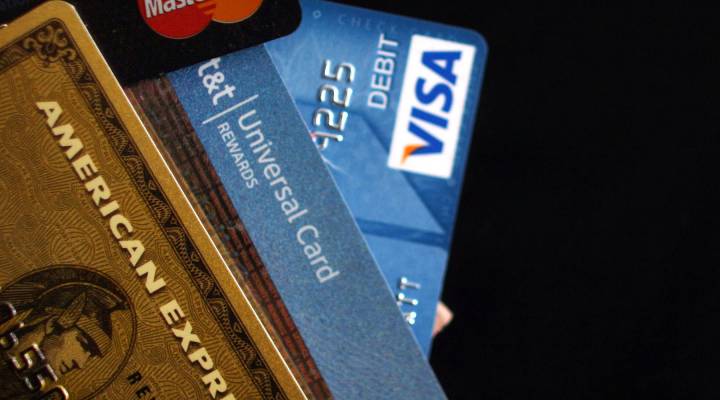
Advice for when you’re drowning in credit card debt

Imagine this: You have $30,000 in credit card debt. What do you do?
That’s a situation facing many people across America — including Ben, 28. He made the mistake of using a credit card to pay for school — it seemed like the easiest thing at the time. The interest rate on the card is around 16 percent.
Ben has a degree in communications, but couldn’t find a job in his field. Now he works as a supervisor at a golf course for one of his jobs. He brings in about $40,000 a year.
“It was a foolish error, but it was at the time — I need to pay this, I need to pay this now,” he says. “I got myself in this mess, I want to get out.”
He has closed one credit card, but has others — with interest rates upwards of 10 percent. He doesn’t really have other savings and needs help.
Personal finance expert Liz Weston offers this advice: “Normally I say if your credit card and medical bills combined are half or more of your income, you need to be talking to a legitimate credit counselor, but you also need to be talking to a bankruptcy attorney.”
“You need to know all your options before you decide,” she adds. “You need to be realistic.”
One resource for those seeking credit counseling help: The National Foundation for Credit Counseling
For more of Weston’s advice, click play on the audio player above.
There’s a lot happening in the world. Through it all, Marketplace is here for you.
You rely on Marketplace to break down the world’s events and tell you how it affects you in a fact-based, approachable way. We rely on your financial support to keep making that possible.
Your donation today powers the independent journalism that you rely on. For just $5/month, you can help sustain Marketplace so we can keep reporting on the things that matter to you.


















